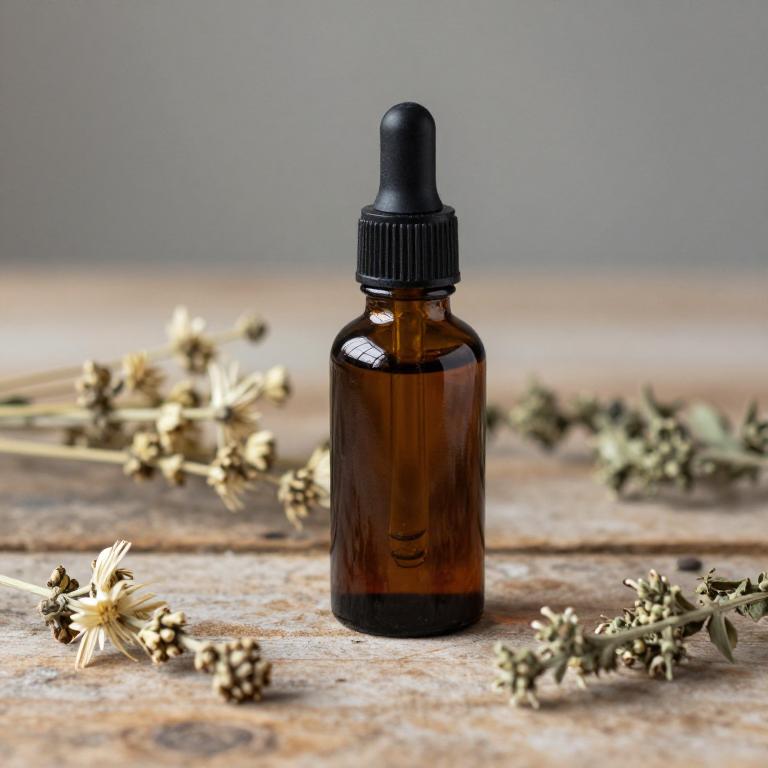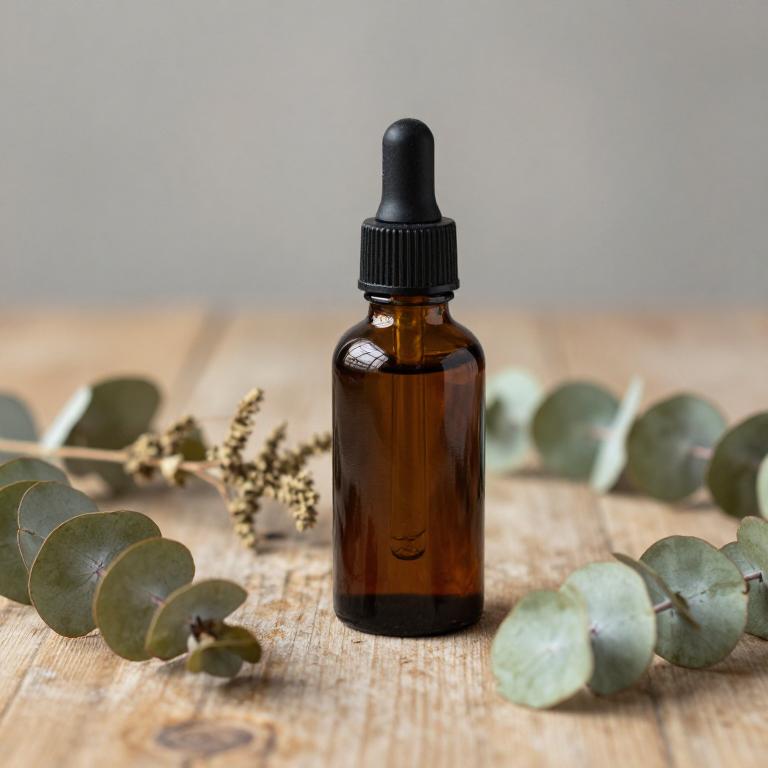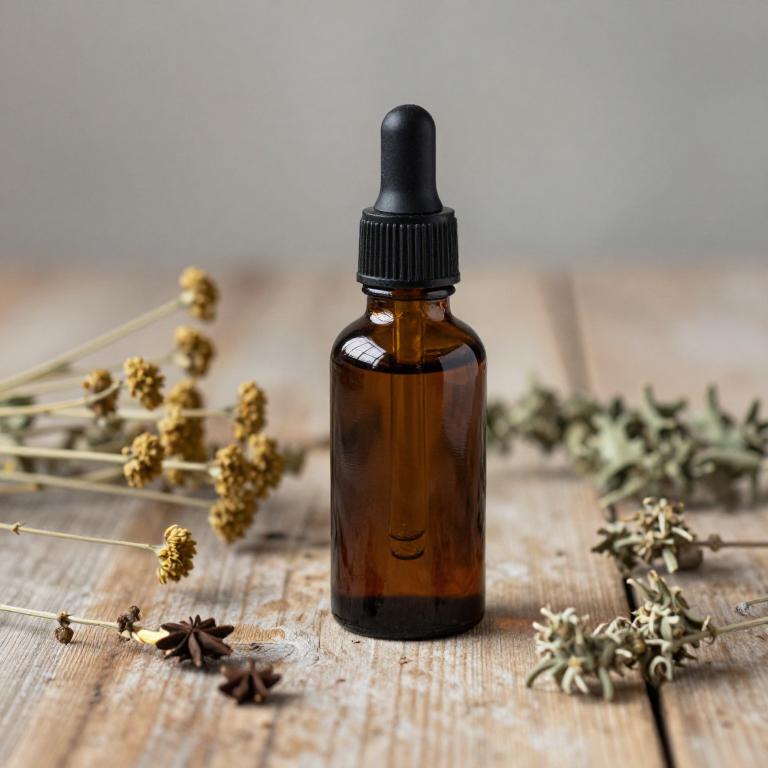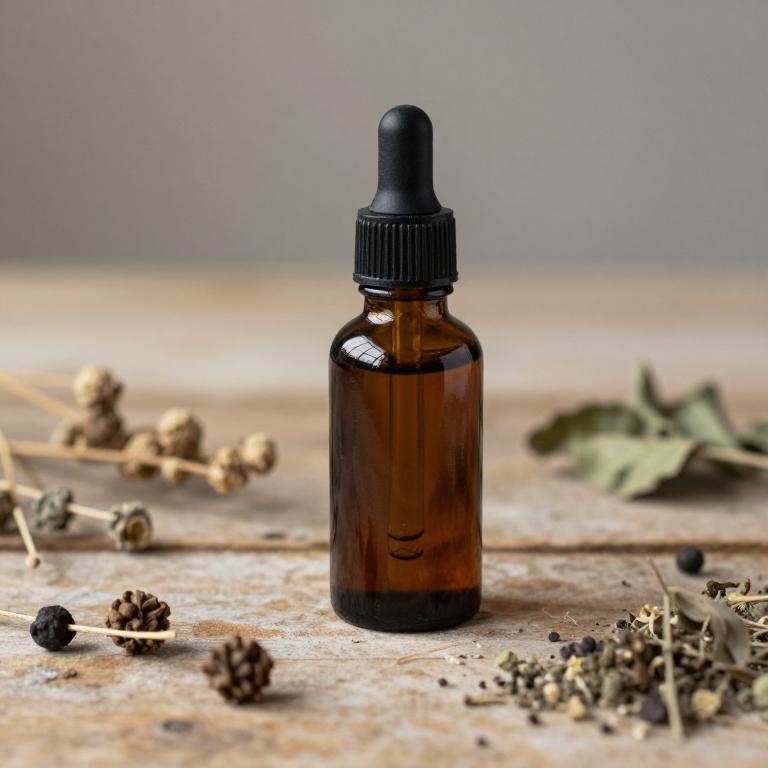10 Best Herbal Tinctures For Runny Nose

Herbal tinctures for a runny nose are concentrated liquid extracts made from various plants known for their decongestant and anti-inflammatory properties.
Common herbs used in these tinctures include eucalyptus, sage, thyme, and ginger, which can help reduce nasal congestion and soothe irritated mucous membranes. These tinctures are often taken orally or used as nasal sprays, offering a natural alternative to over-the-counter medications. They are typically easy to prepare at home using alcohol as a solvent, though commercially available options are also widely available.
However, it is important to consult with a healthcare professional before use, especially for individuals with allergies or chronic health conditions.
Table of Contents
- 1. Stinging nettle (Urtica dioica)
- 2. Echinacea (Echinacea purpurea)
- 3. Catnip (Nepeta cataria)
- 4. Salvia (Salvia officinalis)
- 5. Peppermint (Mentha piperita)
- 6. Eucalyptus (Eucalyptus globulus)
- 7. Ginger (Zingiber officinale)
- 8. Thyme (Thymus vulgaris)
- 9. Parsley (Petroselinum crispum)
- 10. Ceylon cinnamon (Cinnamomum verum)
1. Stinging nettle (Urtica dioica)

Urtica dioica, commonly known as stinging nettle, is a plant that has been used for centuries in traditional medicine for its various therapeutic properties.
Herbal tinctures made from Urtica dioica are often used to help alleviate symptoms of a runny nose, particularly during seasonal allergies or colds. These tinctures are typically prepared by soaking the dried leaves in alcohol to extract the active compounds, which may include flavonoids and other anti-inflammatory agents. The anti-inflammatory and antihistamine-like effects of stinging nettle may help reduce nasal congestion and mucus production.
However, it is important to consult with a healthcare professional before using Urtica dioica tinctures, especially for individuals with existing health conditions or those taking other medications.
2. Echinacea (Echinacea purpurea)

Echinacea purpurea herbal tinctures are commonly used to support immune function and may help alleviate symptoms of a runny nose, particularly during colds or seasonal allergies.
These tinctures are typically made by soaking the dried roots and leaves of the echinacea plant in alcohol, allowing the active compounds to be extracted. The primary active ingredients, such as alkamides, caffeic acid derivatives, and polysaccharides, are believed to have anti-inflammatory and immunostimulant properties. While some studies suggest echinacea may reduce the duration of cold symptoms, its effectiveness for runny nose specifically remains inconclusive.
As with any herbal remedy, it is advisable to consult a healthcare provider before use, especially for individuals with allergies or chronic health conditions.
3. Catnip (Nepeta cataria)

Nepeta cataria, commonly known as catnip, has been traditionally used in herbal medicine for its potential soothing effects on respiratory ailments, including a runny nose.
When prepared as a tincture, nepeta cataria may help reduce nasal congestion and inflammation by acting as a mild decongestant and antispasmodic. The essential oils in catnip, such as nepetalactone, are believed to have a calming effect on the mucous membranes, potentially alleviating symptoms of a stuffy or runny nose. However, while some anecdotal evidence supports its use, scientific research on the efficacy of nepeta cataria tinctures for nasal issues is limited.
As with any herbal remedy, it is advisable to consult a healthcare professional before use, especially for individuals with allergies or underlying health conditions.
4. Salvia (Salvia officinalis)

Salvia officinalis, commonly known as sage, has been traditionally used for its medicinal properties, and its herbal tinctures are increasingly being explored for their potential to alleviate symptoms of a runny nose.
These tinctures are typically made by soaking dried sage leaves in alcohol to extract their active compounds, such as rosmarinic acid and flavonoids, which have antimicrobial and anti-inflammatory effects. Sage tinctures may help reduce nasal mucus production and soothe irritated nasal passages, making them a natural alternative for those suffering from allergic rhinitis or upper respiratory infections. However, it is important to consult with a healthcare provider before using sage tinctures, especially for prolonged periods or in combination with other medications.
While preliminary studies show promise, more research is needed to fully understand the efficacy and safety of sage tinctures for treating runny nose symptoms.
5. Peppermint (Mentha piperita)

Mentha piperita, commonly known as peppermint, is often used in herbal tinctures to help alleviate symptoms of a runny nose.
These tinctures work by stimulating the nasal passages and reducing mucus production through their cooling and decongesting properties. Peppermint contains menthol, which can provide a soothing effect and help clear nasal congestion. When used as a nasal spray or diluted in water, peppermint tinctures may offer natural relief for mild sinus issues.
However, it is important to consult with a healthcare professional before using these tinctures, especially for children or individuals with sensitive nasal conditions.
6. Eucalyptus (Eucalyptus globulus)

Eucalyptus globulus, commonly known as eucalyptus or gum tree, is a popular herb used in herbal tinctures to help alleviate symptoms of a runny nose.
The tincture is typically made by soaking the dried leaves of the plant in alcohol, allowing the active compounds, such as eucalyptol, to be extracted. These compounds have expectorant and decongestant properties that can help reduce nasal congestion and clear mucus. When used as a nasal spray or inhalation, the tincture can provide relief from stuffiness and promote easier breathing.
However, it is important to use it in moderation and consult a healthcare professional, especially for children or individuals with allergies.
7. Ginger (Zingiber officinale)

Zingiber officinale, commonly known as ginger, has been traditionally used for its medicinal properties, and its herbal tinctures are gaining attention for their potential to alleviate symptoms of a runny nose.
These tinctures are typically prepared by soaking fresh or dried ginger in alcohol, allowing the active compounds such as gingerol and shogaol to be extracted. The warming and anti-inflammatory effects of ginger may help reduce nasal congestion and soothe irritation in the nasal passages. Some studies suggest that ginger can help decrease the production of mucus and improve respiratory function, making it a natural remedy for colds and allergies.
However, it is important to consult a healthcare professional before using ginger tinctures, especially for individuals with existing health conditions or those taking medications.
8. Thyme (Thymus vulgaris)

Thymus vulgaris, commonly known as thyme, is a popular herb used in herbal tinctures for its potent antimicrobial and anti-inflammatory properties.
Thyme tinctures are often recommended for alleviating symptoms of a runny nose, as they can help reduce nasal congestion and soothe irritated mucous membranes. The active compounds in thyme, such as thymol and carvacrol, contribute to its effectiveness in fighting off respiratory infections and easing sinus pressure. When used as a nasal spray or diluted in water, thyme tinctures can provide natural relief for colds and allergies.
However, it is important to consult with a healthcare professional before use, especially for individuals with existing health conditions or those taking other medications.
9. Parsley (Petroselinum crispum)

Petroselinum crispum, commonly known as parsley, has been traditionally used in herbal medicine for its potential to alleviate symptoms of a runny nose.
When prepared as a tincture, parsley contains essential oils and compounds that may help reduce nasal congestion and inflammation. The active components, such as apiol and myristicin, are believed to have antispasmodic and decongestant properties. To use parsley tincture for a runny nose, it is typically diluted in water or taken in small doses under the guidance of a qualified herbalist.
While it may offer natural relief, it is important to consult with a healthcare professional before using it, especially for prolonged or severe symptoms.
10. Ceylon cinnamon (Cinnamomum verum)

Cinnamomum verum, also known as true cinnamon, has been traditionally used in herbal medicine for its potential therapeutic properties.
When prepared as a tincture, cinnamon can be used to alleviate symptoms of a runny nose by acting as a natural decongestant and anti-inflammatory agent. The essential oils in cinnamon, such as cinnamaldehyde, may help reduce nasal mucus production and soothe irritated nasal passages. However, it is important to use cinnamon tinctures in moderation, as excessive consumption can lead to irritation or allergic reactions.
Always consult with a healthcare provider before using cinnamon tinctures, especially for prolonged periods or in combination with other medications.